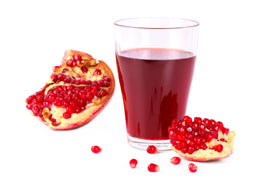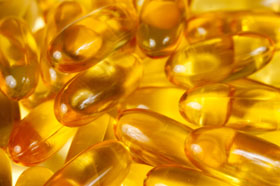Mindfulness Meditation and How it Helps Improve Brain Health

A study showed that mindfulness meditation training in no less than 8 weeks can improve a person's brain structure.
An Introduction to Mindfulness Meditation
In Buddhist tradition, mindfulness meditation has the aims of realizing the true nature of reality by focusing on a single object. The object of concentration can be any physical object, an imaginary picture or, more commonly, the person’s breathing. The primary objective of mindfulness meditation is to keep the mind consistently focused on the same object for the entire period.
There are different organizations that promote mindfulness meditation as a regular habit to maintain and improve brain health. It is a practice that does not require any expensive equipment to perform. All you need to have is a quiet and well ventilated place, and a basic knowledge of how mindfulness meditation works. The goal is to focus your mind on the realities of the ‚Äėnow‚Äô and be mindful of your actions and thoughts at the present time. Different studies show that mindfulness meditation can improve a person’s mood, boost the immune system and alleviate stress.
The first step is to find a comfortable and quiet place where you can sit for an extended period of time. You can choose to sit on the most comfortable chair you have at home and keep your back, neck and head straight at all times. Leave all thoughts of the past behind you and try to stay focused in the present. Notice your breathing and feel the sensation of the air flowing in and out of your body. Try to observe how each breath is different from the previous and keep doing this until it becomes instantaneous and effortless.
You will begin to think about other things like your worries, fears, anxiety and other thoughts of the past. Try not to ignore them, instead make an effort to acknowledge them lightly. Try to remain calm and re-direct your attention and focus back on your breathing. Being pulled away from your focal point will always happen at first. But as you practice, you will soon begin to have more control over your mind and you’ll get pulled out less frequently each time.
Mindfulness Meditation to Improve Brain Health
A team of researchers from the Massachusetts General Hospital found that mindfulness meditation can improve a person’s brain structure in just 8 weeks of continuous practice. The researchers gathered a group of study participants who participated in an 8-week mindfulness meditation program and measured their brain regions associated with stress, empathy, sense of self and memory. The study was the first to investigate the effects of meditation on the gray matter of the brain.
Lead researcher Sarah Lazar from the MGH Psychiatric Neuroimaging Research program said that mindfulness meditation does not only give practitioners a sense of physical relaxation and peacefulness but they had also reported physical and cognitive improvements as long-term benefits. She added that their study shows that the claimed benefits may be due to the resulting physiological changes of mindfulness meditation. The study gives evidence that the practice does not only give practitioners a feeling of temporary peacefulness but that it benefits them by creating positive changes in the brain.
The previous studies conducted by Lazar’s team already showed structural differences between people who practice mindfulness meditation from those who have no history of practicing meditation. They had observed an improvement in the cerebral cortex and in areas linked to emotional and attention integration. But the previous studies lacked the evidence to show that the differences were produced by the practice of mindfulness meditation.
In their most recent study, the researchers took magnetic resonance (MR) images of the brain structure of 16 study participants before and after they were subjected to 8 weeks of mindfulness meditation; the program was created by the University of Massachusetts’ Center of Mindfulness. The study participants also received meditation guides in the form of audio recordings in addition to their weekly mindfulness meditation meetings that focused on nonjudgmental awareness of the state of mind, feelings and sensations. They were also asked to track the length of time that they practiced mindfulness meditation each day. In order to overcome the weakness of their previous study, the researchers used a control group and took MR images of their brain with the same time interval.
The study participants who participated in the mindfulness meditation program reported an average of 17 minutes of meditation in a day. Their responses to a mindfulness exam also showed improvements compared to their responses before participating in the program. The MR images also showed increased gray matter density in the hippocampus which is known to be important for memory and learning. Increase in density in areas linked to introspection, compassion and self-awareness were also observed. The control group did not experience any of these similar changes.
A neuroscientist from the University of Miami said that the results of the study put some light on the effects of mindfulness meditation to the brain. She added that the study showed that stress can be reduced for a short 8-week period of practicing mindfulness mediation and that it opens more opportunities to investigate better ways of effectively managing stress-related disorders.
Other Health Benefits of Mindfulness Meditation
Different studies have found that mindfulness mediation will not only give a feeling of peacefulness and relaxation but that it can also produce long-term effects to the person’s mental abilities. Mindfulness meditation can help people improve their intentional response to the present moment. This results to making better decisions and will allow them to respond more effectively to stress. In the past, mindfulness meditation lacked the scientific basis to prove its claimed benefits. But scientific studies are slowly producing evidences to show that mindfulness meditation can create positive changes in the brain
The various health benefits of mindfulness meditation include:
- development of self-acceptance
- better pain management for chronic health conditions
- increased self-awareness
- improved immune function
- reduced blood pressure
- more effective management of stress, anxiety, depression and other related symptoms.
- For chronic illness, studies had found that mindfulness meditation can help patient better manage episodes of pain and prevent resulting emotional complications like stress and depression.
Sources
altmedicine.about.com
eurekalert.org
studenthealth.ucsf.edu
Posted: January 26th, 2011 under Brain Health.
Tags: heath benefits of mindfulness meditation; mindfulness meditation for brain health; mindfulness meditation against stress
Comments: none

















